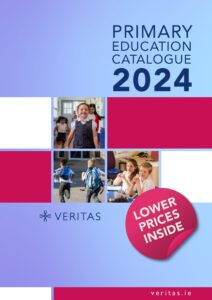Have you ever noticed how some individuals, families, countries and continents, carry more than a share fair of burdens in their lives? Perhaps there are personal issues that weigh people down; sickness, bereavements and losses in families; famine, war, natural disasters, oppression, injustices in countries and continents and yet people live, eek out an existence or just about exist through the daily grind. Yet, many others who witness such situations do their best to support people who find themselves in difficult situations. God provides in God’s own way.
Today’s reading proclaimed at Mass (Ex 3:1-6, 9-12) continues the conversation between God and Moses from the burning bush. God gives Moses his divine mission. God told Moses to go to the sons of Israel and say to them, ‘The Lord, the God of your fathers, the God of Abraham, the God of Isaac and the God of Jacob has sent me to you.’ God also told Moses to tell them that God saw ‘all that the Egyptians were doing’ to crush the Israelites. In addition, God had a plan to bring the Israelites out of Egypt. God told Moses to go to the king of Egypt and to tell him that the ‘Lord , the God of the Hebrews’ was coming to meet them and Moses will request ‘three days journey into the wilderness to offer sacrifices to the Lord our God.’ God is aware of the difficult mission he is giving to Moses. He knows that ‘the king of Egypt will not let you [them] go unless he is forced by a mighty hand.’
God chose Moses for a mission. God spoke with him and instructed him in what he should do step-by-step. God did not reveal the whole plan to Moses nor did God leave Moses alone to carry out the mission.
This ever-abiding presence of God is the central theme in the Liturgy of the Word of God today.
Psalm 104:1, 5. 8-9, 24-27 proclaims the psalmist recalling and remembering the wonders the Lord has done including God’s miracles and God’s covenant. The assembly praises God acknowledging, ‘The Lord remembers his covenant for ever.’
The Gospel proclaims (Mt 11:28-30) Jesus’ invitation to God’s people to come to him when they are overburdened and he will give rest. Jesus reveals himself as ‘gentle and humble’ and assures all that ‘my yoke is easy and my burden is light.’
When Jesus speaks these words, he does not mean he will remove the burden from them, but he will give the means of carrying the burden. Jesus the patient and humble teacher enables the disciples to see the presence and mercy of God at work in their lives and in the burdens, they bear.
Who will help the people who are carrying heavy burdens in life at this time? St Teresa of Avila reminds us that ‘Christ has no body now but yours, no hands, no feet on earth but yours.’
Jesus invites each one to go and help others in his name.
This story of Moses, including online resources can be accessed in the Grow in Love /I nGrá Dé religious education programme; as also the Grow in Love /I nGrá Dé Children’s e-book.
Website: www.growinlove.ie
Email: trial@growinlove.ie
Password: growinlove
INVITATION
PRAY
- You might like to read the following prayer with your family
Christ has no body but yours
Christ has no body but yours,
No hands, no feet on earth but yours,
Yours are the eyes with which He looks
Compassion on this world,
Yours are the feet with which He walks to do good,
Yours are the hands, with which He blesses all the world.
Yours are the hand yours are the feet,
Yours are the eyes you are His body.
Christ has no body now but yours,
No hands, no feet on earth but yours,
Yours are the eyes with which he looks
compassion on this world.
Christ has no body now on earth but yours.
(St. Teresa of Ávila (attributed))
READ
- From your Bible read about God’s call to Moses from the burning bush (Ex 3:1-6, 9-12, 13-20).
ACTION
- How can you use your hands and your feet to help someone today?
Sr Anne Neylon

